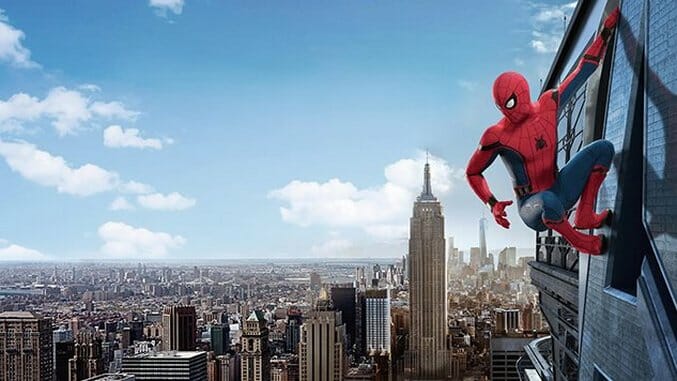Spider-Man: Homecoming

It’s simultaneously easy and impossible to forget that Spider-Man: Homecoming is part of the Marvel Cinematic Universe. Easy, because unlike most every MCU film before it, with the partial exception of Doctor Strange, it manages to extricate its characters (and especially its scope) from the world-ending catastrophes faced by The Avengers to tell a story that is a little bit more “close to the ground,” to use Tony Stark’s (Robert Downey Jr.) own words. Impossible because, well, Tony Stark is in this. Quite a bit, actually. Nevertheless, Homecoming manages to pull off the most difficult feat for just about any franchise installment: It justifies its own existence. Briskly paced and charming to a fault, it’s a Spider-Man movie that fully embraces both its source material and the perils of 21st century teenage life.
Much of that praise is owed to Tom Holland, who is playing the first iteration of Peter Parker who, damnit, actually feels like a high school student—more or less. Can he pass for 15 years old? Not a chance, but there’s a wide-eyed ingenue quality to him, a joy in becoming Spider-Man, missing from the likes of both Tobey Maguire’s and Andrew Garfield’s takes. This is a Peter Parker who is understandably taken aback by the massive events in which he immediately found himself embroiled after being recruited by Iron Man in Captain America: Civil War. Engaging in battle alongside The Avengers? The idea is so dumbfounding (and so unfathomably cool) to him that in the days that follow, you get the sense that he can hardly believe it actually happened. His itch to prove himself to Stark, and to thus re-enter their world of demigods, is an obsession that borders on mania, and it’s unsurprising that as a result he has quite a difficult time restricting his purview to “friendly neighborhood Spider-Man,” as Stark requests.
-

-

-

-

-

-

-

-

-

-

-

-

-

-

-

-

-

-

-

-

-

-

-

-

-

-

-

-

-

-

-

-

-

-

-

-

-

-

-

-








































